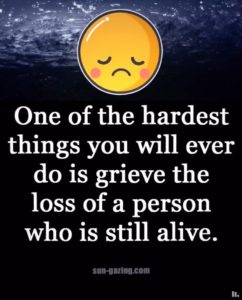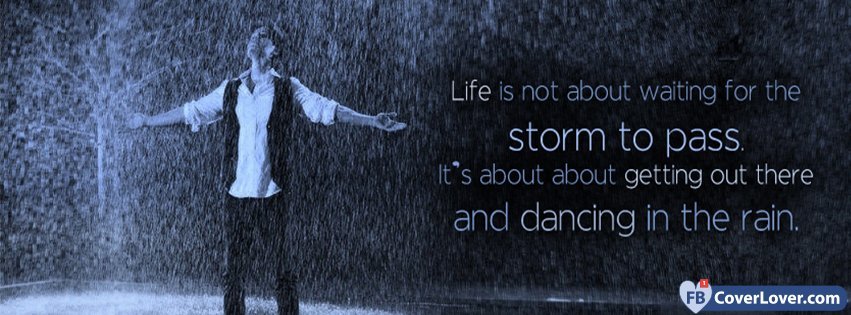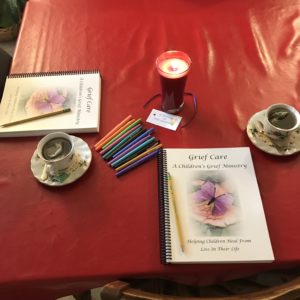It’s been awhile since I posted a blog post; my goal when we started this blog was to try to post once a month. One of the articles I read when researching about blogging said not to focus so much on blogging that you forget to live real life and that is why I haven’t posted for a while and this post is pretty much what we’re living out these days. It would seem after 4 years that we’d feel like we have more answers or fewer questions. Or have a better understanding or feel more together, more victorious than it at times appears to me but maybe victory looks different in trauma and grief.
We’re still asked questions that have no answers, “Why did Jennie have to die?”
Sure, I can give a medically correct answer, “Her injuries were too bad, too big for her body to survive.”
“But isn’t God a big God? Why didn’t He do something?!?”
“Oh, honey, I don’t know, I don’t understand either. It does feel like God has let us down, doesn’t it? But the truth is God is just as sad and broken-hearted as we are. He hurts because we hurt.” We’ve had many similar conversations the past weeks, months, years… It’s been good, even though it’s been very painful, for my heart to have these conversations. The death of my child made me question everything I believed, everything I thought I knew about God. It was a crisis of my faith. It made me question; “What/who is the most important thing? What is the eternal value of doing what I’m doing? And with the heavy responsibility of bringing up our children – well, the pat answers, the clichés didn’t work anymore; we live out of our hearts, not our brains, so it’s what we know in our hearts, what we believe at the heart level that we live out in our life. Sometimes we aren’t aware of what our hearts our actually believing until a crisis happens in our lives and we’re left with what our hearts know and have experienced. And we’ll only be able to pass on to our children what we know, believe in our heart.
 Some things we’ve learned about trauma and grief over the years. Trauma is any negative event that produces distress; it can be physical and/or emotional. Trauma can cause children to revert to younger behavior, such as wetting themselves even though they are potty trained, throwing a temper tantrum or crying a lot, thumb-sucking, baby-talking. It causes them to become anxious, fearful and upset, at times having nightmares or affecting their ability to concentrate with learning. Children also recreate the trauma in their play, one of our girls would lie on the floor and play with toy cars and have accident after accident where people were flying out of their cars and dying. I was horrified at first but then I realized it was one way she was trying to understand, make sense of the tragedy that shattered her young world. Trauma in young children affects their brains in very real ways but if they are well-connected emotionally in a safe secure way their brains handle trauma differently than if they don’t feel safe and secure. Any type of trauma makes a child question, “Is my world safe?” And living in an insecure, unsafe world can actually rewire a brain making childhood trauma a difficult journey.
Some things we’ve learned about trauma and grief over the years. Trauma is any negative event that produces distress; it can be physical and/or emotional. Trauma can cause children to revert to younger behavior, such as wetting themselves even though they are potty trained, throwing a temper tantrum or crying a lot, thumb-sucking, baby-talking. It causes them to become anxious, fearful and upset, at times having nightmares or affecting their ability to concentrate with learning. Children also recreate the trauma in their play, one of our girls would lie on the floor and play with toy cars and have accident after accident where people were flying out of their cars and dying. I was horrified at first but then I realized it was one way she was trying to understand, make sense of the tragedy that shattered her young world. Trauma in young children affects their brains in very real ways but if they are well-connected emotionally in a safe secure way their brains handle trauma differently than if they don’t feel safe and secure. Any type of trauma makes a child question, “Is my world safe?” And living in an insecure, unsafe world can actually rewire a brain making childhood trauma a difficult journey.
Children and teens grieve so differently that we as adults. Sometimes it shows up as misbehavior, anger- especially at God and parents (They should have kept my world safe and didn’t), fear- sometimes irrational because world they knew no longer feels secure. We were encouraged to not spank our children in that first year after the death of Jennie. Yes, they need disciplined but most of their problematic behaviors came out of a heart filled with pain, insecurity and unsettledness. We were advised by our grief counselors to hold our child tightly till they have calmed down; and then tucking their head under our chin, against our chest and read their favorite story books for 15-30 minutes. Then talk about their behavior, about their feelings and actions. I don’t know or totally understand the science or psychology behind this but we have done this so often and it really works. Four years later, how we do it looks a bit different but we still read to our children and do story time very regularly and interestingly enough our new home school evaluator told me reading to your children often and lots is one of the most important things you can do for them. She said the relationship built while reading to them is the foundation on which the rest of their education is built. We also need to help our children put words to their feelings, to what is happening in their hearts and to let them know they are not alone. I feel a lot of the same feelings and have lots of questions too. We need to model grieving well. Where do we show them to go with and in our pain- to Jesus or to eating, electronics, emotionally shutting down or withdrawing?
 We’re also going through a “grief-share” book for children. It is called Grief Care- A Children’s Grief Ministry- Helping Children Heal From Loss in Their Life written by Wanda Miller and Elvera Miller. It has stories of children who had loved ones die and how they felt, questions they had, feelings they felt, etc and it helps our child realize they are not alone, others have felt the same feelings and asked some of the same questions they do. It helps them put words to their feelings. It gives an opportunity to think about, to explore, to talk about what’s going on in their heart and mine too.
We’re also going through a “grief-share” book for children. It is called Grief Care- A Children’s Grief Ministry- Helping Children Heal From Loss in Their Life written by Wanda Miller and Elvera Miller. It has stories of children who had loved ones die and how they felt, questions they had, feelings they felt, etc and it helps our child realize they are not alone, others have felt the same feelings and asked some of the same questions they do. It helps them put words to their feelings. It gives an opportunity to think about, to explore, to talk about what’s going on in their heart and mine too.
So maybe we are living in victory after all because we’re exploring our hearts, being vulnerable to ask questions, allowing our hearts to feel the pain, the longings we have, being honest with each other. Living in victory is not that I don’t experience pain, its knowing where to go with that pain and inviting my child to go with me to Papa God with our pain. Maybe victory is choosing to dance in the storm and knowing God is right there dancing with me.

